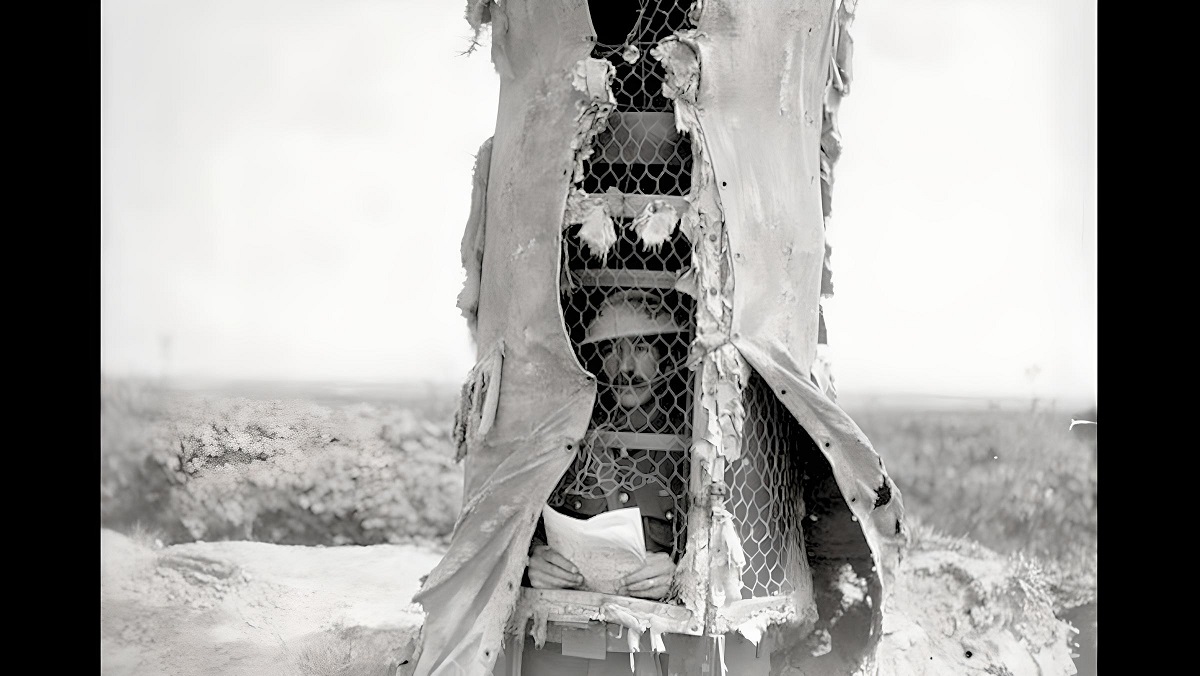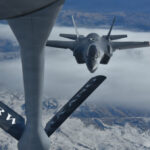
Smaller armies, unlike America’s, don’t really plan for expeditionary operations.
The U.S. has alliances with many smaller nations. Their military planning is almost wholly defensive and, surprisingly, appears somewhat constrained by their American alliance. There is a better way.
To wit, over the course of his military career, the author has had the opportunity to work with three relatively small, allied armies on their defensive planning. There have been a surprising number of similarities in these experiences. Smaller armies, unlike America’s, don’t really plan for expeditionary operations. They basically have one mission and one plan: national territorial defense. These countries’ plans include integrating allied forces as part of their overall defense although all have the capability, at least to a certain extent, to defend their national territory in the absence of foreign forces.
A more troubling aspect of these plans is their almost wholly reactive nature. Consistent with international law, it is understandable that countries allied with the United States do not plan to invade foreign nations or to instigate regional war. Not only do we consider ourselves, collectively, to be the good guys, but smaller countries don’t typically pick fights with their larger neighbors, even if the small country is a US ally. As a result, these smaller armies, lacking an expeditionary character, are understandably focused on the map of their own national territory. That having been said, being small(er) is no excuse to completely surrender the initiative in maneuver warfare. This is especially the case if smaller nations can expect to act in concert with regional allies in the course of hostilities. Maneuver can be just as important supporting the defense as it is in the offense.
As a general matter, all fights will be unfair, and smaller countries require alliances to even the odds. Without such assistance, small countries’ military and industrial capacities presage defeat in fights with larger neighbors. Before World War II, small nations’ alliances were prey to larger, regional powers due to these inherent inequalities of size. In addition, some regional militaries have been hobbled by structures designed to accommodate domestic political realities rather than to effectively defend the nation, a problem which all militaries have to face to some extent.
For any given small nation, the way in which hostilities are initiated is the key to the amount and character of allied support they might expect to receive. If the enemy uses the defender’s country as their main axis of advance, even a small country might reasonably expect that their allies’ military resources will flow into their country to (eventually) meet the threat. However unfortunate it would be to host a major conflict on its national territory, at least there is a reasonable expectation that sufficient allied forces and materiel would flow into the country. If, however, a contemporary conflict is centered elsewhere and a regional power exploits an alliance’s otherwise-distracted military focus to launch an opportunistic attack with the aim of capturing all or part of the smaller country’s territory, then a smaller nation is faced with a more difficult problem. Help from allied nations may not be immediately forthcoming. Alternately, allied assistance it may only be available in smaller measure than anticipated.
To bridge this gap, what advantages smaller nations do possess, they must exploit to the fullest: the population’s commitment to national survival, the inherent advantages of the defense, an innovative defense sector, and the defender’s intimate knowledge of their own countries’ geography. Their knowledge of the enemy—a long-time neighbor—can be a significant advantage for its own use in addition to this local expertise being immeasurably useful in allied planning. Can the defender use its deep knowledge of the attacker and the attacker’s way of war to identify an exploitable weakness? A small nation must also leverage whatever asymmetrical advantages they can muster: among these are deception and the initiative. It is the latter which, in the author’s experience, smaller countries almost completely sacrifice in their defense planning. The author has seen too many planning maps that do not include the foreign territory over which enemy land forces will inevitably advance to threaten the national territory, nor include vital military objects in neighboring, unfriendly territory that will be inevitably used to support invasion forces. These “blank map sections” reflect, on the one hand, an understandable national political aversion towards doing anything that appears like a plan to initiate conflict with a larger neighbor but, on the other, represent a denial to military staffs of permission to plan in a crucial part of the future battlespace: the axis along which the attacking land force is expected to strike, the territory upon which the enemy will build combat power, and the territory over which it will resupply itself over the course of the conflict.
Deception, of course, can and should properly be considered as an inherent part of maneuver.
What is required is a more aggressive form of maneuver that puts the enemy commander on the horns of a dilemma. As has been written elsewhere, “In maneuver warfare, the object is to shatter the enemy’s organizational and mental cohesion by creating unexpected and dangerous situations more rapidly than he can deal with them.”
In U.S. Army doctrine, military deception is a treated as a stand-alone activity. Deception, of course, can and should properly be considered as an inherent part of maneuver. A commander forces the enemy to spread his or her forces more thinly with every successful feint or demonstration. Ever better, these forms of maneuver serve to raise questions in the enemy commander’s mind as to what the defender’s ultimate objective may be.
Just as we assess the enemy’s most likely and most dangerous courses of action to inform our own plan, the enemy forms some expectation of how allied nations will defend in wartime. This is an exploitable intellectual flank. Whatever our assessment of the enemy’s belief, we can exploit it by appearing to act in the expected way, but by actually doing something else. Not rocket science—just basic Sun Tzu stuff. Even so, these principles rarely appear to be incorporated into land force defensive planning, even at the highest levels.
In short, it behooves the small defender to exploit to the fullest its ability to be unpredictable when planning to defend its territory from a superior force. It is by defying expectations that we frustrate the “foregone conclusions” of our defeat. This article was originally composed well before Ukraine’s August 2024 Kursk offensive, but that attack demonstrates the principle beautifully.
The basic geometry of the battlefield in these regions of the world have not changed in centuries. We attempt to mitigate the risks of land warfare through engagement with all the diplomatic, information, and economic elements before there is reliance on the military elements of DIME. But if the land fight comes—especially if a small country must face that fight without the full might of an odds-evening alliance—defending in predictable pre-planned sectors (and piously hoping for favorable force ratios when facing a larger enemy) may be dangerously insufficient to meet the moment.
“It most satisfying, sirs, for the ministers of a free people to be able to announce that their country shall be saved…We do not sound the alarm, but we sound the charge on the enemies of the nation. To defeat them, gentlemen, we need boldness, more boldness, and always boldness (De l’audace, encore de l’audace, et toujours de l’audace)...” George Danton, addressing the French National Assembly, September 2, 1792.
Garri Benjamin Hendell is a major in the Pennsylvania Army National Guard. He has completed three overseas deployments to the CENTCOM area of operations, four overseas training missions to Europe, leadership and staff positions at the platoon, company, battalion, brigade, division, and joint force headquarters level, as well as having served both in uniform and as a civilian branch chief at the National Guard Bureau. He is a graduate of the Army’s Red Team Member’s course and was recently appointed Red Team Chief on the 28 Infantry Division staff.
The views expressed in this article are those of the author and do not necessarily reflect those of the U.S. Army War College, the U.S. Army, or the Department of Defense.
Photo Description: The back of a canvas and steel tree observation post, near Souchez. 15 May 1918.
Photo Credit: David McLellan. This image was created and released by the Imperial War Museum on the IWM Non Commercial License





A great note by Garri Benjamin Hendell. Thank you.
Define ‘small’ in real terms […and define ‘big’ as well while we’re at it] … by
number of members of the armed forces? degree of use of technology? depth of training? % of GDP spent on defense? amount of political to satisfy international commitments? and so on …
Thinking small? Think Israel, the UK, Canada. Thinking big? Think USA, Russia, China. Where do Australia and India fit?
An equally useful metric is comparable “proven battlefield effect” to create a benefit / cost ratio for improving resource management.
Cheers,
LJH